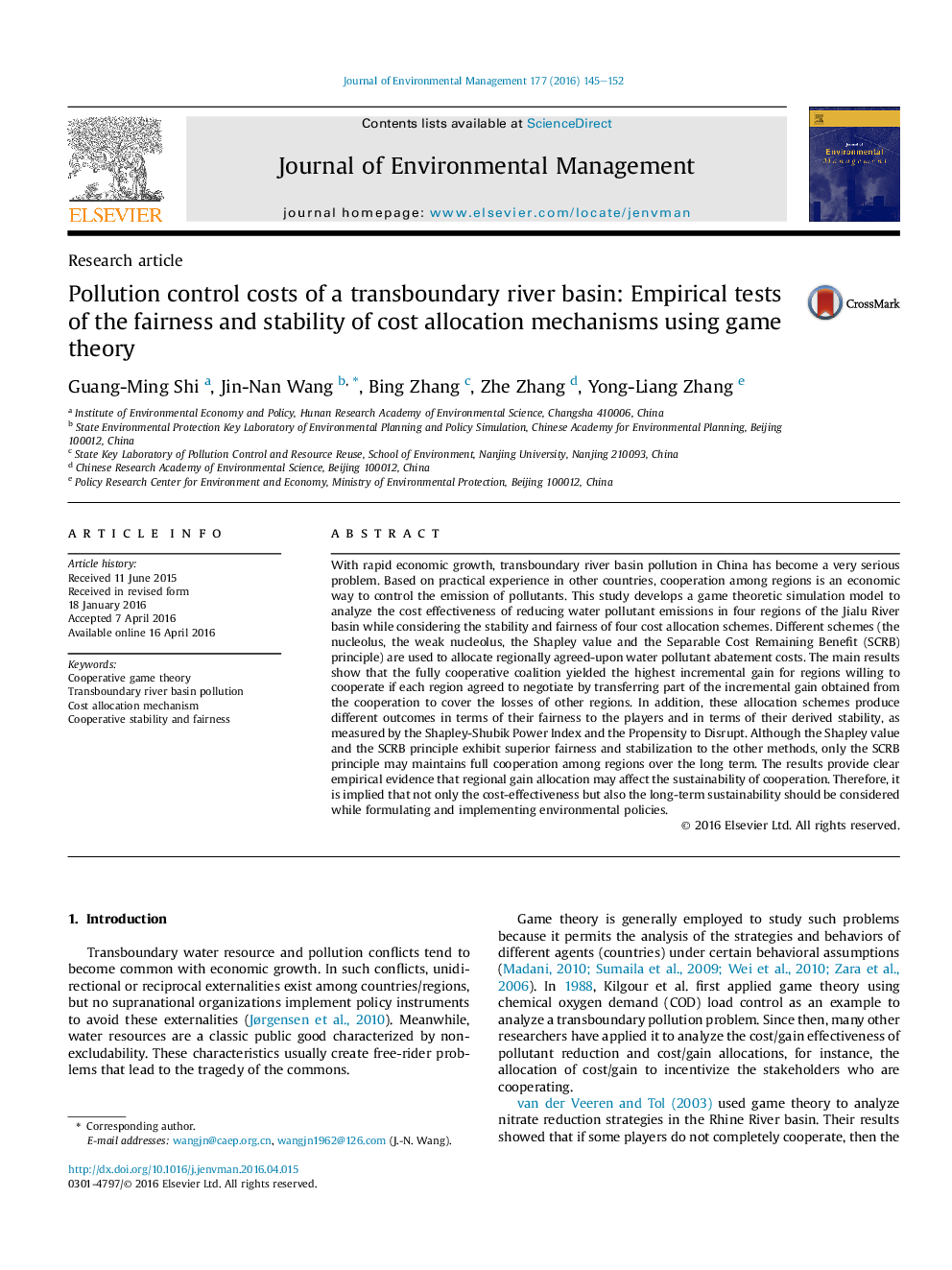| کد مقاله | کد نشریه | سال انتشار | مقاله انگلیسی | نسخه تمام متن |
|---|---|---|---|---|
| 7480354 | 1485235 | 2016 | 8 صفحه PDF | دانلود رایگان |
عنوان انگلیسی مقاله ISI
Pollution control costs of a transboundary river basin: Empirical tests of the fairness and stability of cost allocation mechanisms using game theory
ترجمه فارسی عنوان
هزینه های کنترل آلودگی یک حوضه دریای مرزی: آزمایش های تجربی از انصاف و ثبات مکانیسم های تخصیص هزینه با استفاده از نظریه ی بازی
دانلود مقاله + سفارش ترجمه
دانلود مقاله ISI انگلیسی
رایگان برای ایرانیان
کلمات کلیدی
نظریه بازی تعاونی، آلودگی حوضه دریای مرزی مکانیسم تخصیص هزینه ثبات تعاونی و منصفانه،
موضوعات مرتبط
مهندسی و علوم پایه
مهندسی انرژی
انرژی های تجدید پذیر، توسعه پایدار و محیط زیست
چکیده انگلیسی
With rapid economic growth, transboundary river basin pollution in China has become a very serious problem. Based on practical experience in other countries, cooperation among regions is an economic way to control the emission of pollutants. This study develops a game theoretic simulation model to analyze the cost effectiveness of reducing water pollutant emissions in four regions of the Jialu River basin while considering the stability and fairness of four cost allocation schemes. Different schemes (the nucleolus, the weak nucleolus, the Shapley value and the Separable Cost Remaining Benefit (SCRB) principle) are used to allocate regionally agreed-upon water pollutant abatement costs. The main results show that the fully cooperative coalition yielded the highest incremental gain for regions willing to cooperate if each region agreed to negotiate by transferring part of the incremental gain obtained from the cooperation to cover the losses of other regions. In addition, these allocation schemes produce different outcomes in terms of their fairness to the players and in terms of their derived stability, as measured by the Shapley-Shubik Power Index and the Propensity to Disrupt. Although the Shapley value and the SCRB principle exhibit superior fairness and stabilization to the other methods, only the SCRB principle may maintains full cooperation among regions over the long term. The results provide clear empirical evidence that regional gain allocation may affect the sustainability of cooperation. Therefore, it is implied that not only the cost-effectiveness but also the long-term sustainability should be considered while formulating and implementing environmental policies.
ناشر
Database: Elsevier - ScienceDirect (ساینس دایرکت)
Journal: Journal of Environmental Management - Volume 177, 15 July 2016, Pages 145-152
Journal: Journal of Environmental Management - Volume 177, 15 July 2016, Pages 145-152
نویسندگان
Guang-Ming Shi, Jin-Nan Wang, Bing Zhang, Zhe Zhang, Yong-Liang Zhang,
